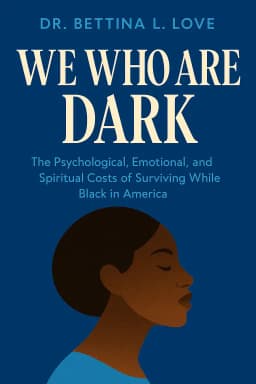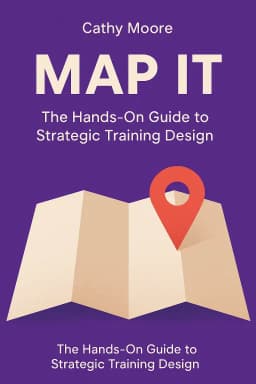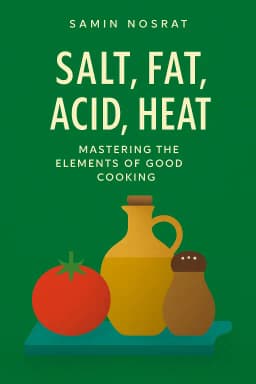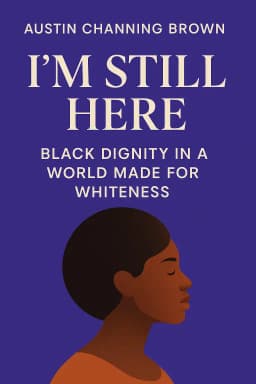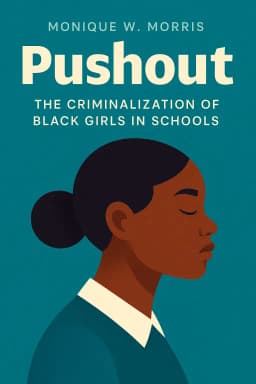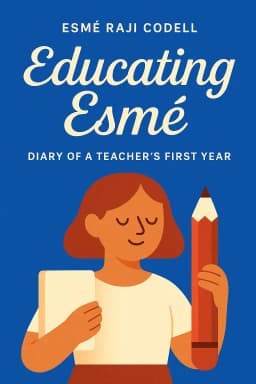
Madame Esmé vs. The System
Diary of a Teacher’s First Year
Golden Hook & Introduction
SECTION
Laura: Alright Sophia, quick pop quiz. What's the first thing that comes to mind when you hear the title Educating Esmé? Sophia: Honestly? It sounds like a stuffy 19th-century novel about a governess in a gray dress teaching Latin to a sullen orphan. But I have a feeling I'm about to be proven very, very wrong. Laura: Very wrong. Think less gray dress, more roller-skating down the school hallway while teaching multiplication tables. Today we are diving into Educating Esmé: Diary of a Teacher’s First Year by Esmé Raji Codell. Sophia: Roller-skating? Okay, I'm in. That is not the vibe I was getting at all. Who is this woman? Laura: That’s the perfect question, because her background is key. Before becoming a teacher in a tough Chicago public school, Esmé Raji Codell was a children's librarian and a bookseller. So she entered the classroom not just as an educator, but as a fierce, passionate advocate for the magic of stories. Sophia: A librarian let loose in a public school classroom. I can already smell the delightful chaos. Where do we even start with her story? Laura: We start where she starts: with a head full of brilliant, creative, and slightly chaotic ideas, and a brick wall of bureaucracy to run into. This is the central tension of the entire book.
The Rebel Teacher: Creative Chaos vs. Bureaucratic Order
SECTION
Sophia: The classic battle: the passionate innovator versus the soul-crushing system. I feel like every profession has a version of this story. How did it play out for Madame Esmé? Laura: Oh, it starts almost immediately. She gets hired at a brand-new school, and before the doors even open, she's brimming with ideas. Her first big pitch is for a school-wide "Fairy Tale Festival." Sophia: That sounds amazing! What, like a Renaissance Faire but with the Three Little Pigs instead of jousting? Laura: Exactly! She has this incredibly detailed proposal: a Fairy Tale Fashion Show, carnival games based on stories, a bake sale that doubles as a book sale. It's all designed to get kids and the community fired up about reading. She's not just thinking about her 31 students; she's thinking about transforming the entire school's culture around literacy. Sophia: I love this. It's ambitious, it's fun, it's community-focused. The principal must have been thrilled. Laura: The principal, a Mr. Turner, gives her a lukewarm, "Sure, but you have to run it by the committee." And that's where the dream goes to die. She presents it to the librarian-to-be and the "Friends of the School Library" committee. Sophia: Uh oh. I've been on committees. "Friends of the Library" can sometimes mean "Enemies of New Ideas." Laura: You nailed it. They just pick it apart. One person says it's unrealistic. Another is skeptical. The vice-principal, Ms. Coil, insists it has to be a "group effort," but then the group immediately decides it's too much effort. The whole, beautiful, vibrant idea is just deflated by bureaucratic hot air and a total lack of imagination. Sophia: That is so painfully relatable. It’s death by a thousand "concerns." But what does Esmé do? Does she just give up? Laura: She gets frustrated, of course. But this is our first real glimpse into her character. She writes in her diary, "The goal is not necessarily to succeed but to keep trying, to be the kind of person who has ideas and see them through." It sets the stage for her entire year. She realizes she's going to have to fight for every creative impulse. Sophia: And that fight gets even more personal, doesn't it? This isn't just about big events. It gets down to the very name she wants to be called. Laura: It absolutely does. This is the infamous "Madame Esmé" controversy. She decides she wants her students to call her "Madame Esmé." Sophia: Why "Madame"? It feels a little theatrical. Laura: That's the point! She tells her students it makes her feel regal, like a queen. She even demonstrates, showing how she stands up straighter and feels more confident when they say it. It’s a small act of performance and self-creation. One of her students, Billy, hilariously remarks, "You look like a giraffe." Sophia: Kids will always keep you humble. But I get it. It's about creating a persona, a sense of occasion in the classroom. It’s not just "Ms. Codell's boring fifth-grade class." It's the court of "Madame Esmé." Laura: Precisely. But the principal, Mr. Turner, hates it. He sends her a formal memo demanding she use a "more acceptable title." He claims it's distracting from the learning process. Sophia: Distracting from the learning process? It sounds like it is the learning process! She's teaching them about identity, respect, and how you present yourself to the world. Laura: She refuses to stop. She stands her ground. The conflict escalates to the point where Mr. Turner threatens to write her up and pursue a court case against her. Sophia: A court case? Over being called "Madame"? This is absurd. Laura: It is. And Esmé knows it. So she calls the ACLU, who basically laugh and confirm that the principal is being ridiculous. The issue is never fully resolved, but she never stops being Madame Esmé. It becomes her battle flag. Sophia: Wow. This really paints a picture. On one hand, you could see how an administrator might find her… difficult. The book did get some mixed reactions, with some readers finding her confrontational. But on the other hand, she's fighting these nonsensical battles so she can create a space where real, meaningful education can happen. Laura: That's the core of it. She famously tells Mr. Turner at one point, "I don’t work for you, I work for the children." And that philosophy is what defines her approach, not just in fighting the administration, but in how she deals with the kids themselves. Sophia: And that feels like the perfect pivot. Because fighting the adults is one thing, but the real work, the real magic, happens with those kids behind the closed classroom door. It seems like her teaching went way beyond just books and lesson plans.
Beyond the Curriculum: Teaching the Whole Child
SECTION
Laura: It went so far beyond. She understood that these kids, coming from an inner-city environment, were dealing with so much more than homework. They needed lessons in life, in trust, in accountability. And she wasn't afraid to get her hands dirty teaching them. Sophia: You can't just teach fractions to a kid who is dealing with chaos at home. You have to teach the whole child. What's a story that really captures that? Laura: The story of the stolen comic book is a masterclass in this. Esmé, being a book lover, uses her own money to create this amazing classroom library. It's her pride and joy, and the kids love it. But one day, a Columbus comic book goes missing. Sophia: Oh, the ultimate betrayal for a librarian! Laura: Exactly. She's heartbroken. She asks for it back, no questions asked. Nothing. Silence. So, she makes a dramatic move. She takes down the entire library. Every single book. She locks them all in a closet. Sophia: Whoa. That is a bold move. What did the kids do? Laura: They were furious! They complained, they whined. Then, a parent, Valerie's mom, comes in to confront her, demanding she put the books back for the other kids. Sophia: I can see the parent's point of view. Why punish everyone for one kid's mistake? This feels like it could have backfired spectacularly. Laura: It was a huge risk. But Esmé holds her ground. She tells the mother, "I only share with friends, and I can't trust my friends in here right now." She explains that trust is a two-way street. She's not just a resource dispenser; she's a person who has been disrespected. She's teaching them that actions have real, tangible consequences that affect the entire community. Sophia: So what happened? Did the book ever reappear? Laura: It did. A few days later, the comic book is returned anonymously. It's just sitting on her desk. And true to her word, Esmé puts the entire library back up. The lesson was learned. It wasn't about punishment; it was about restoring a broken social contract. It’s a lesson in civics, in ethics, in community, all disguised as a fight over a comic book. Sophia: That gives me chills. It’s such a high-stakes way of teaching, but so incredibly powerful. And it seems like she empowers the kids to solve their own problems, too. It's not always her laying down the law. Laura: That’s maybe the most radical part of her teaching. She facilitates, but she lets them lead. The perfect example is the conflict resolution meeting. A student named Zykrecia is really upset because a boy, Kyle, made a crude, inappropriate comment to her. Sophia: A situation that happens in every school, every day. How does a typical teacher handle that? A lecture, detention, a call home? Laura: Right. But Madame Esmé has the class hold a formal meeting. Zykrecia gets to stand up and, in her own words, tell Kyle exactly what he said and how it made her feel. She says, "I didn’t like it when you said you were going to take me doggy style. It made me feel angry and upset." Sophia: Wow. For a fifth-grader to articulate that in front of her peers is incredibly brave. And for a teacher to create a space safe enough for that to happen is just… remarkable. Laura: The other students act as mediators. Another girl, Selena, tells Kyle that it doesn't matter what he meant to do; what matters is how Zykrecia felt. They ask Zykrecia what she wants as a resolution. She says she wants Kyle to never speak to her again. And he has to agree. Sophia: What was the outcome for Kyle? Laura: He's devastated. He's held accountable not by an adult, but by his own community. He cries at his desk, and the other kids just leave him be. Esmé notes that he's hurting, but that he'll now be accountable for his actions. She didn't solve the problem for them; she gave them the tools and the forum to solve it themselves. Sophia: This is the stuff you can't measure on a standardized test. And that's the whole point, isn't it? The afterword of the book, written by Jim Trelease, talks about this disconnect between what policymakers think education is—test scores, rote learning—and the reality of what teachers like Esmé do. Laura: Exactly. He praises her ingenuity and dedication. And the results were there, even in the metrics the system values. At the end of the year, her students' reading and math scores had jumped dramatically, some by two or three grade levels. They were the best in the school. Sophia: So she was getting both. She was teaching them to be better humans, and it was making them better students. It proves that the two aren't mutually exclusive. In fact, they're probably deeply connected.
Synthesis & Takeaways
SECTION
Laura: That's the profound takeaway from Educating Esmé. It’s a powerful argument that real education isn't a neat, tidy, pre-packaged curriculum. It's messy, it's human, it's emotional, and it's often defiant. It’s about seeing children as whole people. Sophia: And it’s a story that has resonated for decades. The book won an Alex Award, which is given to adult books that have special appeal to young adults. It found this huge audience because its honesty is so refreshing. Laura: It’s a book that feels more relevant than ever, as teachers face burnout from increasing pressures and standardized demands. Esmé’s diary is a testament to the fact that a single, passionate, and slightly rebellious teacher can create these small miracles, even when the system seems designed to prevent them. Sophia: It really makes you wonder, though. How many potential 'Madame Esmés' are out there, full of brilliant, creative ideas, who get crushed by the system before they can even get started? How many get worn down by the committees and the memos? Laura: That is the haunting question the book leaves you with. In the epilogue, Esmé reflects on the difference between a new teacher and an experienced one. She says, "The beginning teacher asks, ‘How am I doing?’ and the experienced teacher asks, ‘How are the children doing?’" Her entire first year was a crash course in making that transition. Sophia: It’s a shift from ego to empathy. From surviving to serving. Laura: Perfectly put. And that journey is something so many of us experience, not just in teaching, but in any field where you care deeply. We'd love to hear from our listeners about this—teachers, former students, parents. What does a truly great teacher, a real 'Madame Esmé,' look like to you? Find us on our socials and share your story. Sophia: We want to hear about the rebels, the innovators, and the ones who taught you something that could never be graded. Laura: This is Aibrary, signing off.


